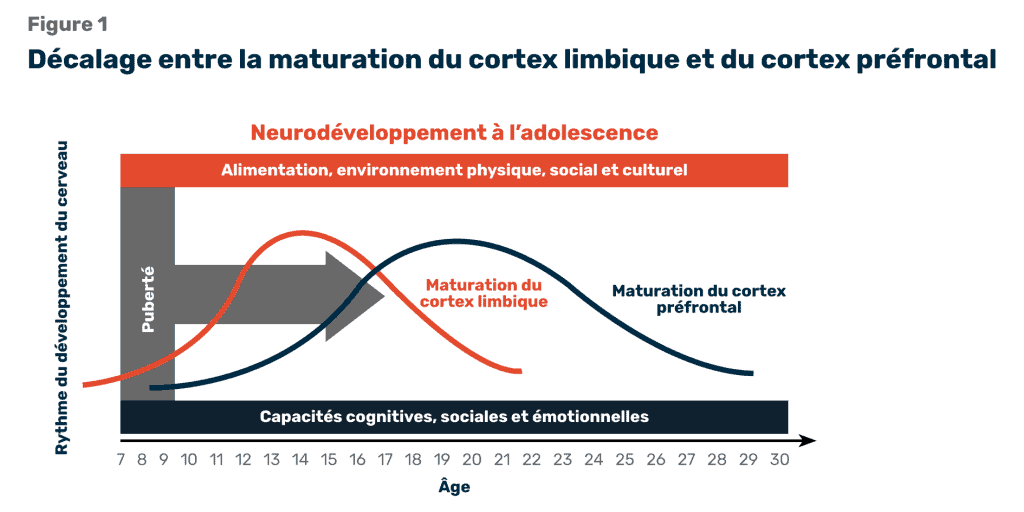Adolescence is a time of major changes in the body, and the brain is no exception. Thanks to tremendous advances in the field of neuroscience, we now know that many changes take place and new connections are formed in various parts of the brain between the ages of 12 and 25.
Did you know that it is primarily these changes in the brain and not hormones that are responsible for teenagers’ characteristic moods and behaviours? These changes are a necessary transition that pave the way for the development of several cognitive abilities such as judgement, anticipating consequences, self-control, emotional regulation, planning, and problem-solving.
It is important to note that the different parts of the brain do not all develop at the same time, nor at the same rate in everyone. That is why not all teenagers behave with the same level of maturity at the same age, and why some periods can be more difficult than others.
To better understand
A delay that explains a lot of things!
It is especially worth noting that there is a lag between the maturation of two major areas of the brain. Namely, the part responsible for generating strong emotions and impulses (the limbic system) develops before the part responsible for rational thinking and judgement (the prefrontal cortex). This delay lays the groundwork for a potentially dangerous cocktail of risk-taking, feelings of invincibility, and difficulty making sensible decisions. During this time, informed decision-making is still a challenge. Unsurprisingly, many teenagers are more likely to take risks during this period.
Figure 1 : See the figure in its original version in english here reproduced and adapted with permission from George Patton. Our future: a Lancet commission on adolescent health and wellbeing. The Lancet https://els-jbs-prod-cdn.literatumonline.com/pb/assets/raw/Lancet/stories/commissions/adolescent-health-2016/report_overview_george_presentation-1463390989267.pdf, consulted October 24, 2019.
In brief
Support is key!
With their brains in turmoil, teens need a lot of guidance. They need support and guidance, especially from their parents. Over time, the maturity a teenager gains will allow them to interpret and experience things differently.
Let’s not forget that risky situations can also be learning opportunities! Teenagers may not think like adults yet, but they are beginning to form their own thoughts and vision of the world. And that is when an entire universe opens up to them!









